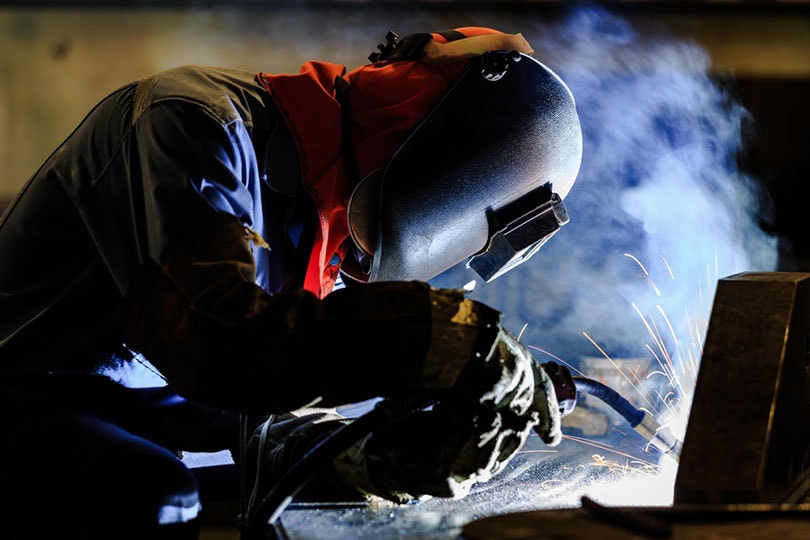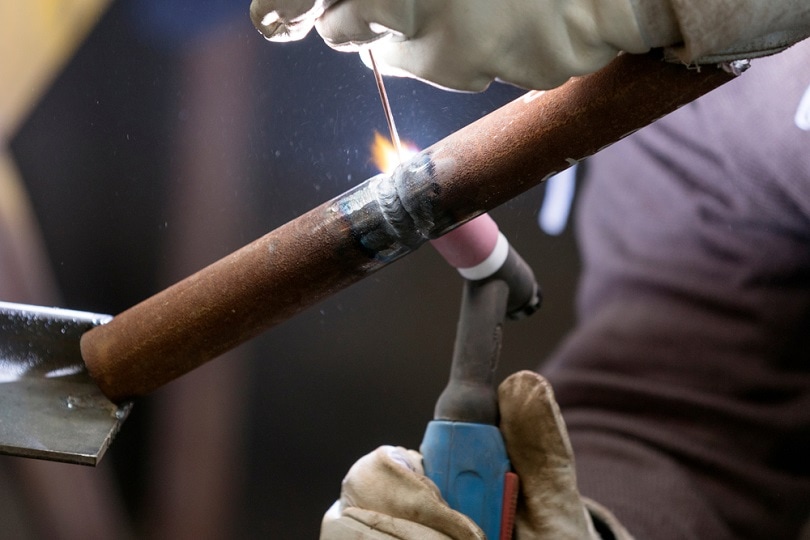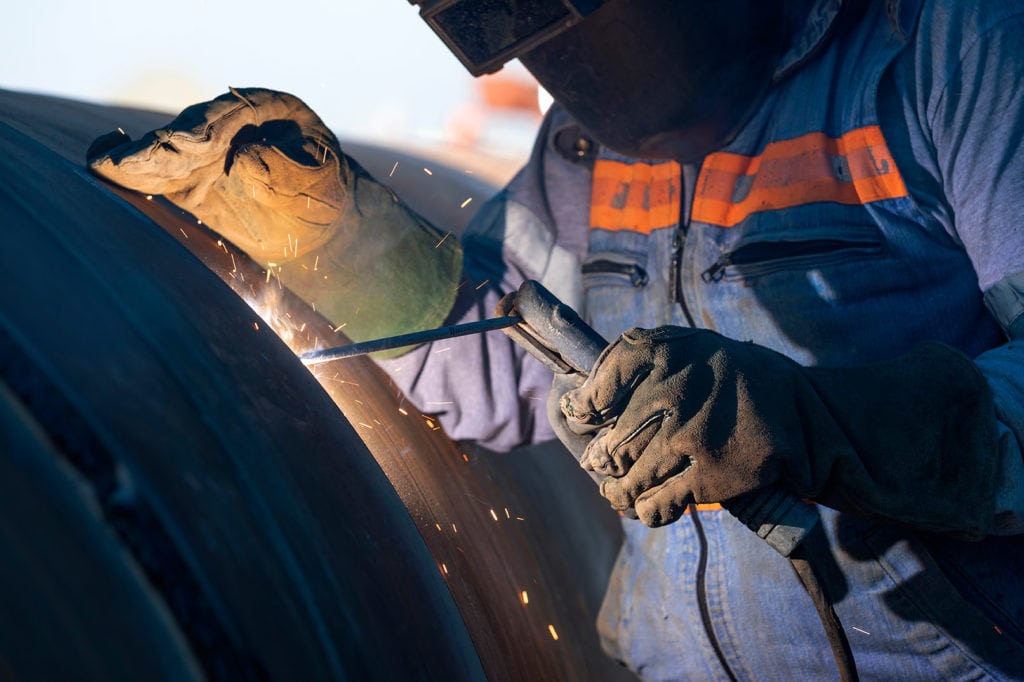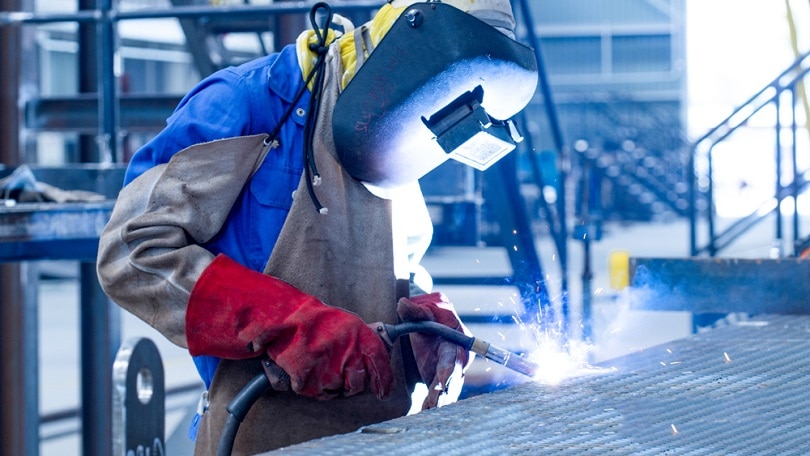How Much Is A Welding Technician Salary In Canada? (2024 Update)
Last Updated on

With the growing demand for welders, many people are combining their love of welding and making money. If you’re one such person, you’ll find this guide helpful.
Over the last few decades, the welding industry has seen tremendous growth. It used to be considered manual labor with low wages, but today’s welders are skilled professionals who command high salaries.
Some of the highest-paid welders are welding technicians. They are an essential part of any welding company; they fabricate, repair, and maintain welded products.
In this article, we’ll discuss a welding technician’s salary in Canada. Also, we’ll cover various aspects of welding technicians.
Skills of a Welding Technician
Welding technicians are responsible for the safety of welding operations. They perform tasks such as cutting and brazing. They also assist with the maintenance and repair of machinery and equipment.
Here are several must-have skills for a welding technician.
- Attention to Detail: This is the ability to concentrate on a task and perform it to the highest quality. The smallest details in a piece of metal or material can make the difference between a bad and an excellent weld.
- Welding Skills: This involves practicing with different welding equipment. Advanced technology allows welders to produce high-quality welded joints using these machines.
- Mechanical Aptitude: Mechanical aptitude is a must-have for a welding technician. It’s crucial to know how to use the welding equipment. If you don’t know what kind of equipment you need, you should get your hands on it before starting the job. Learn how to adjust the settings and make sure everything is working well.
- Problem-Solving Skills: The best welders are problem solvers. They can identify a problem, analyze, and solve it. It’s a crucial skill because issues arise in every job. You’ll be more valuable to your employer if you can solve them.
- Communication Skills: You must be able to explain what you’re doing and why you’re doing it. Communicate (both verbally and in writing) with clients, supervisors, and co-workers well.

Average Welding Technician Salary in Canada
The average salary for welding technicians in Canada varies. Usually, it depends on the province. The average salary is $55,575 per year. If you’re a beginner welding technician, you’ll earn $49,691 annually. That’s the salary for an entry-level position.
Your salary increases as you advance your career as a welding technician. Experienced welding technicians make up to $65,764 per year.
Let’s now look at welding technicians’ salary breakdown.
Hourly Wages
The average hourly welding technician salary is $28.50. Welding technicians with little experience in the field make $25.48.
Those with several years of experience receive a higher pay- up to $33.73 per hour.
Daily Earnings
In one day, a welding technician can earn $214. Entry-level welding technicians make $199. The most experienced ones earn $253 per day.
Weekly Salaries
Some welding technicians receive their salaries at the end of every week. The average weekly salary is $1,069. The entry-level positions attract $997.
On the other hand, welding technicians with many years of experience below their belt make up to $1,265 per week.
Biweekly Salaries
Welding technicians who receive their salaries after a fortnight earn up to $2,316.
Monthly Salaries
Like other professions in Canada, many welding technicians receive their salaries monthly. The average monthly salary is $4,631.
Entry-level salaries start from $4,318 per month. Experienced welding technicians can make up to $5,480 per month.

Six Highest-Paying Provinces
Here’s a table showing the highest-paying provinces for welding technicians in Canada.
| Province | Average Annual Salary | Hourly Average |
| Alberta | $74,654 | $36 |
| British Columbia | $74,584 | $35.86 |
| Ontario | $73,500 | $35.34 |
| Quebec | $69,381 | $33.36 |
| Newfoundland and Labrador | $66,341 | $31.89 |
| Nova Scotia | $65,186 | $31.34 |
As you can see from the table above, Canada’s largest province (Ontario) has the highest average salary for welding technicians. The province has one of the lowest unemployment rates and a strong economy.
The cost of living here is higher than in many other provinces. There are also great opportunities for those looking to get into welding.
Related Salaries of Various Engineers and Technicians in Canada
Engineers and technicians design, install and maintain mechanical systems. They may also be involved in designing and constructing electrical or electronic equipment.
It’s crucial to compare the salaries of various technicians and engineers to a welding technician’s salary.
Here are the salaries of various workers related to welding technicians.
| Job Description | Average Annual Salary | Average Hourly Salary |
| Project Engineer | $88,962 | $45.62 |
| Design Engineer | $80,000 | $41.03 |
| Mechanic | $53,625 | $27.50 |
| Tester | $52,641 | $27.00 |
| Technician | $50,954 | $26.13 |
| Field Service Technician | $47,500 | $24.36 |
| Service Technician | $45,942 | $23.56 |
| Installer | $43,324 | $22.22 |
| Welder | $42,900 | $22.00 |

Factors Affecting a Welding Technician’s Salary
Many factors determine the pay gap for welding technicians. Here are some of them. Keep reading!
1. Years of Experience
Experience is a crucial factor affecting the salary of a welding technician. The more years a welding technician has worked in the field, the higher their pay will be. A welding technician with less than three years of experience will receive lower wages.
2. Education Level
Another factor that affects a welding technician’s salary is the education level. The most common education welding technicians need is a high school diploma.
Those with a university degree or two-year diploma receive higher pay. Usually, welding technicians need at least a two-year diploma in welding technology.
- Welding Equipment: Maintenance and repair of welding machines and related equipment used in welding
- Welding Processes: Using processes like gas metal arc welding (GMAW), gas tungsten arc welding (GTAW), and flux-core arc welding (FCAW).
- Safety in Welding: Safe practices related to the maintenance and use of welding equipment
3. Location
The location of a welding technician’s job will affect their salary. Welding technicians working in a large city, such as Toronto or Vancouver, earn more than those working in small towns.
4. Company Size
The size of the company affects salary greatly. If you work for a small company, you may not make as much money as someone who works for a large company.
The reason is that larger companies usually have more resources, such as better equipment and machinery, which can lead to faster production and more income generated.
As a result, these companies tend to employ more experienced and qualified welding technicians. They can afford them anyway.

Benefits and Bonuses
- Benefits: Besides salaries, companies also offer various benefits. They include health care coverage. Health care benefits include dental and vision. It ensures that you will be cared for should something happen when working.
- Bonuses: Some companies offer bonus pay whenever there is an increase in the sales volume. Bonuses can be an excellent way to increase a welding technician’s income.
Welding Technicians Advancement Prospects
Welding Technicians are a crucial part of the welding industry. They must have a better understanding of the technology and welding processes.
Besides the job descriptions, they can advance their careers by handling more duties such as overseeing welding projects and training beginner welders. With these, they can command a higher salary.
Also, they can stay up-to-date with the changing technology in welding by attending seminars and pursuing advanced courses in welding.
How to Become a Welding Technician in Canada
You must be certified by the Canadian Welding Bureau to become a welding technician in Canada. Candidates must pass an exam and complete a diploma program before obtaining a welding certificate.
The CWB also offers apprenticeship programs before starting the certification process. An apprenticeship allows you to learn a trade through practical experience. You’ll receive hands-on training from experienced industry professionals.
Usually, apprenticeships take two years, but some programs offer accelerated completion options of one year or less.
Final Thoughts
Welding is a noble profession with a rich history. There are plenty of rewarding possibilities for anyone looking to get into the field. You can become a welding technician and work in all areas of welding, brazing, and cutting operations, developing, reviewing, and preparing procedures for various welding projects.
One of the best countries to work as a welding technician is Canada. Welding technicians here receive high salaries, as seen in this article. So, you’ll know what to expect when searching for a welding technician job in Canada.
See Also: What is a Typical Welding Salary in Ontario?
